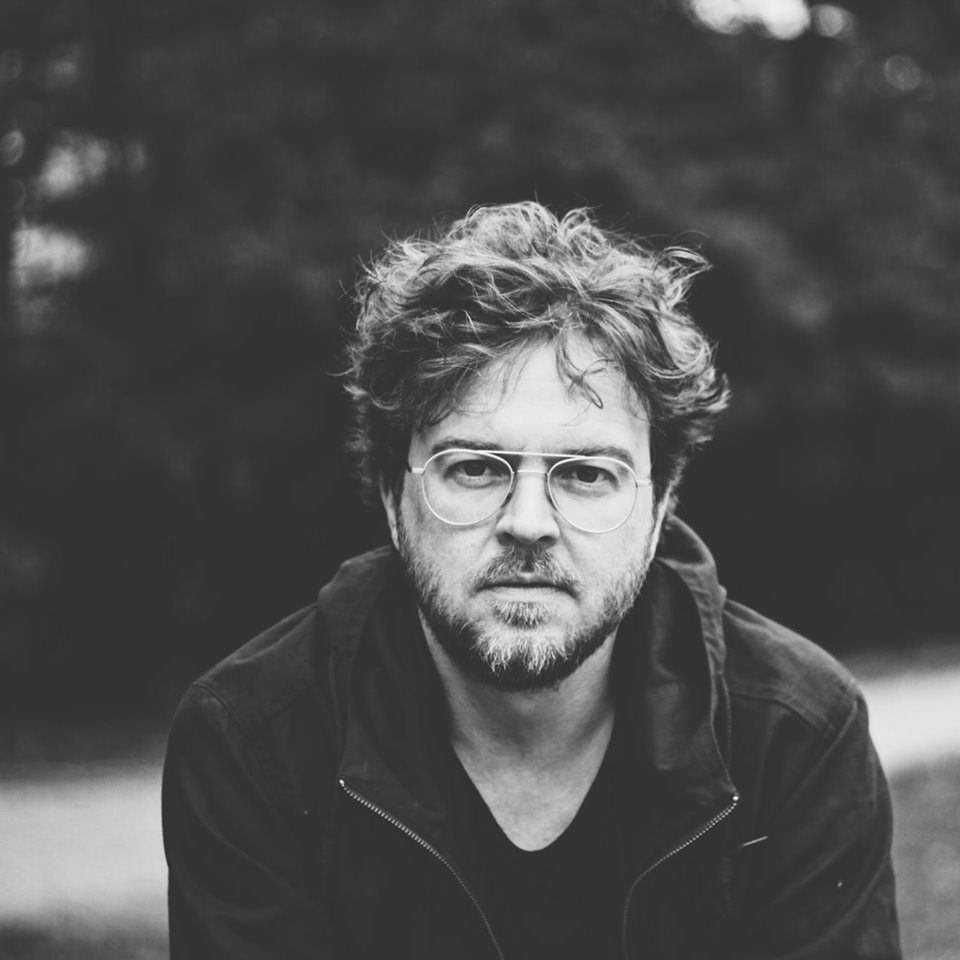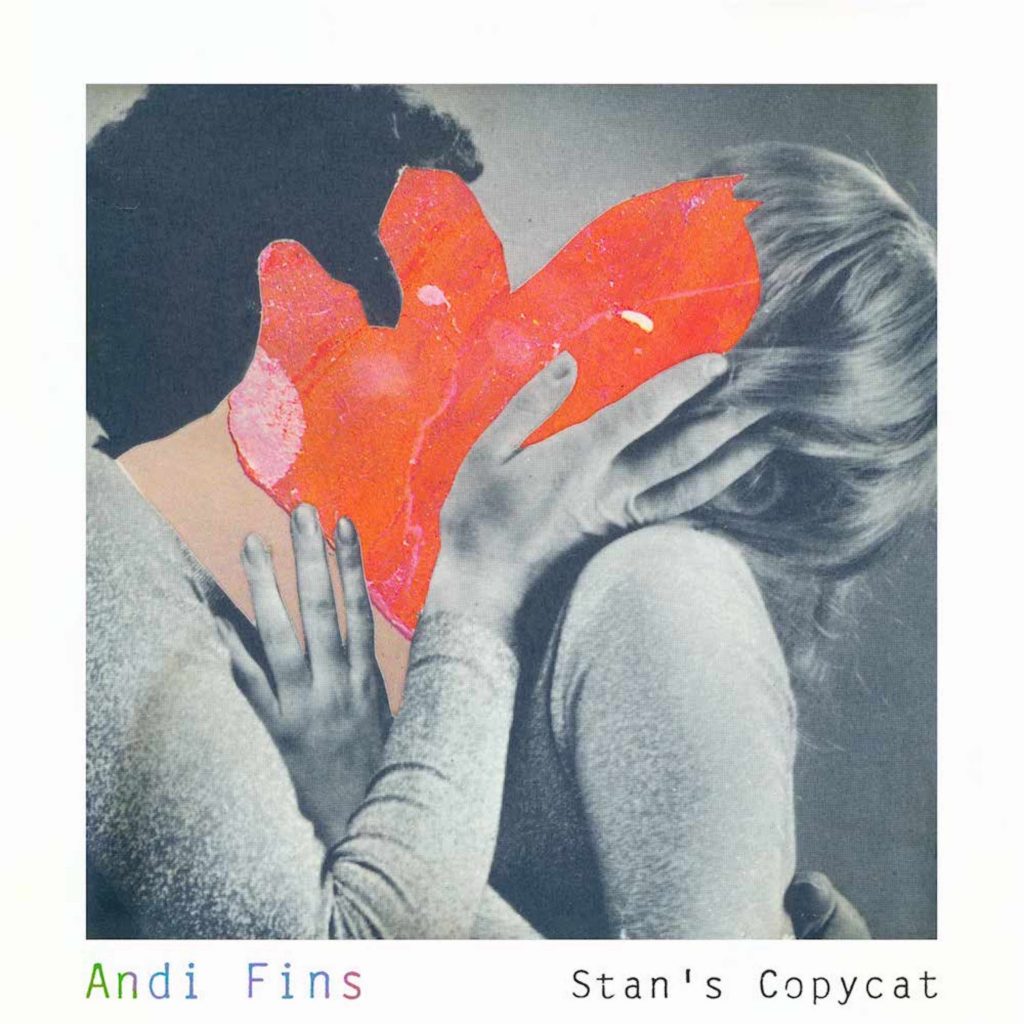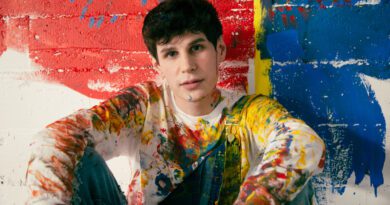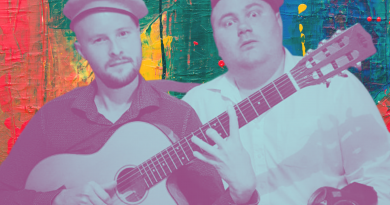A Chat with Andi Fins (25.06.19)

Already our July Musician of the Month, Andi Fins keeps us even more enraptured with his latest interview. A few moments, a bunch of questions, and an email resulted in the following responses. Check out Andi chatting about his latest release, ‘Stan’s Copycat’, recording spaces and music videos.
OSR: Hi, Andi. Thanks so much for chatting with me. I’ll keep this short. Shall we begin?
AF: Cool.
OSR: What was the concept behind ‘Stan’s Copycat’?
AF: I texted with a woman on a dating app. First I thought, for some reason, she came from New York and she thought I was British. After a while, both of us turned out to be two boring Germans. At least we had a funny conversation and decided to go out for a drink on the same evening. After the second one, she said to me I would sound much cooler in writing than talking right here face-to-face. So, the night ended as weird as the day had started. On my way home I had an idea for a song.
OSR: Why did you decide to become a musician?
AF: First as a kid, I wanted to be a music teacher or a car designer; but, at the age of 15 I heard The Police Greatest Hits while we were partying in a cabin somewhere out in the woods. This was a magic moment, I think.
OSR: Is the artwork for ‘Stan’s Copycat’ symbolic in any way? If so, how so?

AF: It’s about love, beauty and about partnership. There will always be the one who’s feeling neglected and the harder someone’s trying to get something, the less of it will happen. The perspective is always changing. Once you are the one who is adored by someone and then it’s the other way around. It’s like an endless cycle. The name of the woman who did the artwork is Anne Krausz and she’s doing a lot of beautiful stuff.
OSR: Do you find recording at a home studio is more productive than using a rented one?
AF: It depends. I need a rented one for drum recordings, but the rest can be done easily at home. You can collect ideas and nothing is pushing you. I like it. Sometimes it’s fun to record all basics in a single room, it has more like an organic and specific groove in which everything seems to interlock, and you don’t fuck around so much with cutting and editing.
OSR: A music video was is soon to follow the single (at the time of this interview). What can you tell us about the video?
AF: It will look great. Well, I don’t, but the rest of it will, I promise. A friend of mine is playing the female part and we are just running through the story of the song. She is really cool, playing football and smoking like hell.
OSR: What message do you want people to take from your music?
AF: It’s their decision, but I feel like making happy music most of the time and I try to take myself too serious. So, if it’s understood like that, I’m fine!
OSR: What is the most exciting part of being a musician and what is the most challenging part?
AF: It’s about creating something and at some point, within the process, you’re just glad listening to something that you’ve just made and you like the way it sounds. It’s what you want to feel again and again. Doesn’t work out always, but sometimes.
OSR: How did you decide on the name ‘Stan’s Copycat’?
AF: Actually, it’s the name of the bar where we met.
OSR: If you could trade lives for one day with any musician, who would you be and why?
AF: I think it’s Sting because he wrote a lot of great songs which were all hit singles though at the same time. I think that’s not the usual combination nowadays. Plus, I’d like the idea to be rich already after one single day.
OSR: What do you do in your spare time?
AF: Writing music, walking through the city and walking wherever I can. I love walking.
OSR: Do you think you have grown as a musician from your earlier days in 2012 with A Chapter Missing A Book to 2019’s ‘Stan’s Copycat’? If yes, how?
AF: I still like this record very much because it’s kind of rough and there are so many different early influences on it. It is really home recorded with some friends of mine playing and engineering – a few microphones, done at home and at a rehearsal space, and I’m glad it sounds like that. It’s just a little record that doesn’t want to be anything else but shows the music that I found somewhere inside of me these days. I still play some songs off it in concerts. I hope I have been able to keep that approach until today but, of course, the sound is developing, is getting bigger in some parts, and today I’m just collecting new inputs for my ears and my brain. It can’t stay there where it once was. That would be scary.
OSR: If you could offer advice to musicians in Europe today, what would that be?
AF: Make your own music and stay independent as long as possible.
Thanks so much to Andi for the interview! To engage with his music, check out his Spotify and Facebook accounts.


